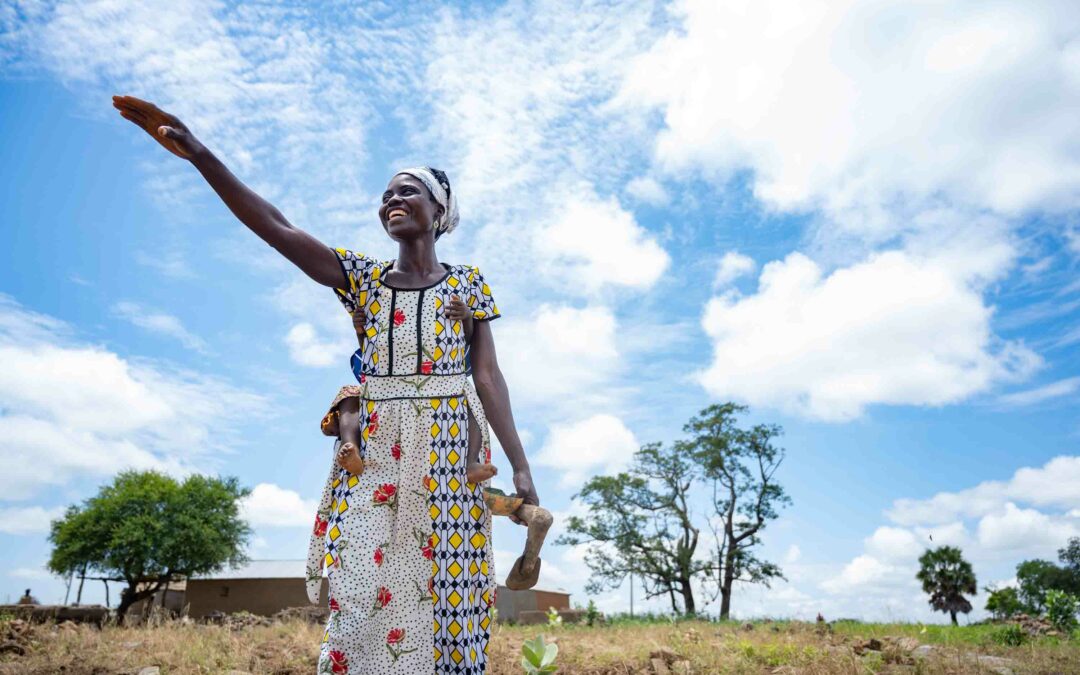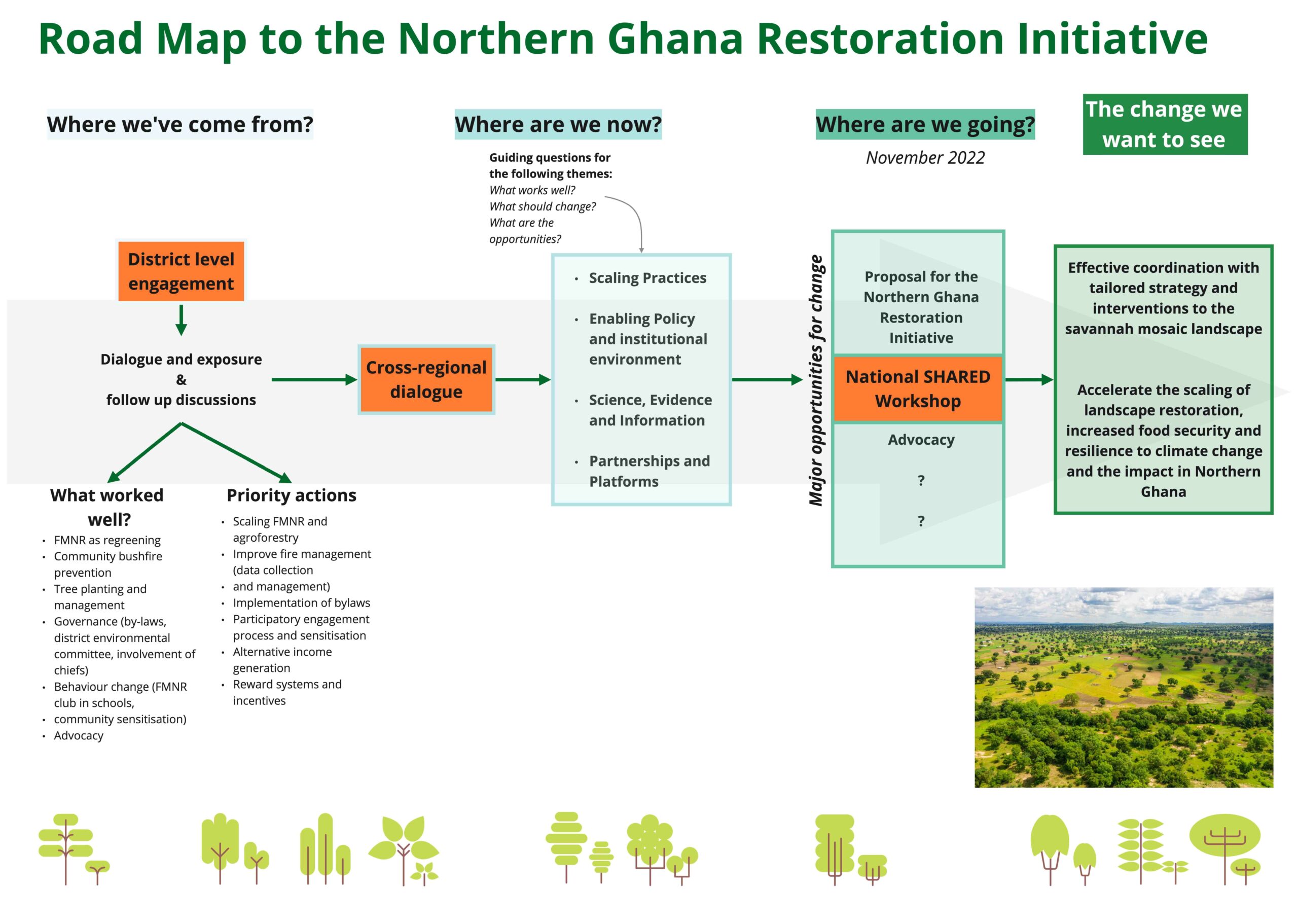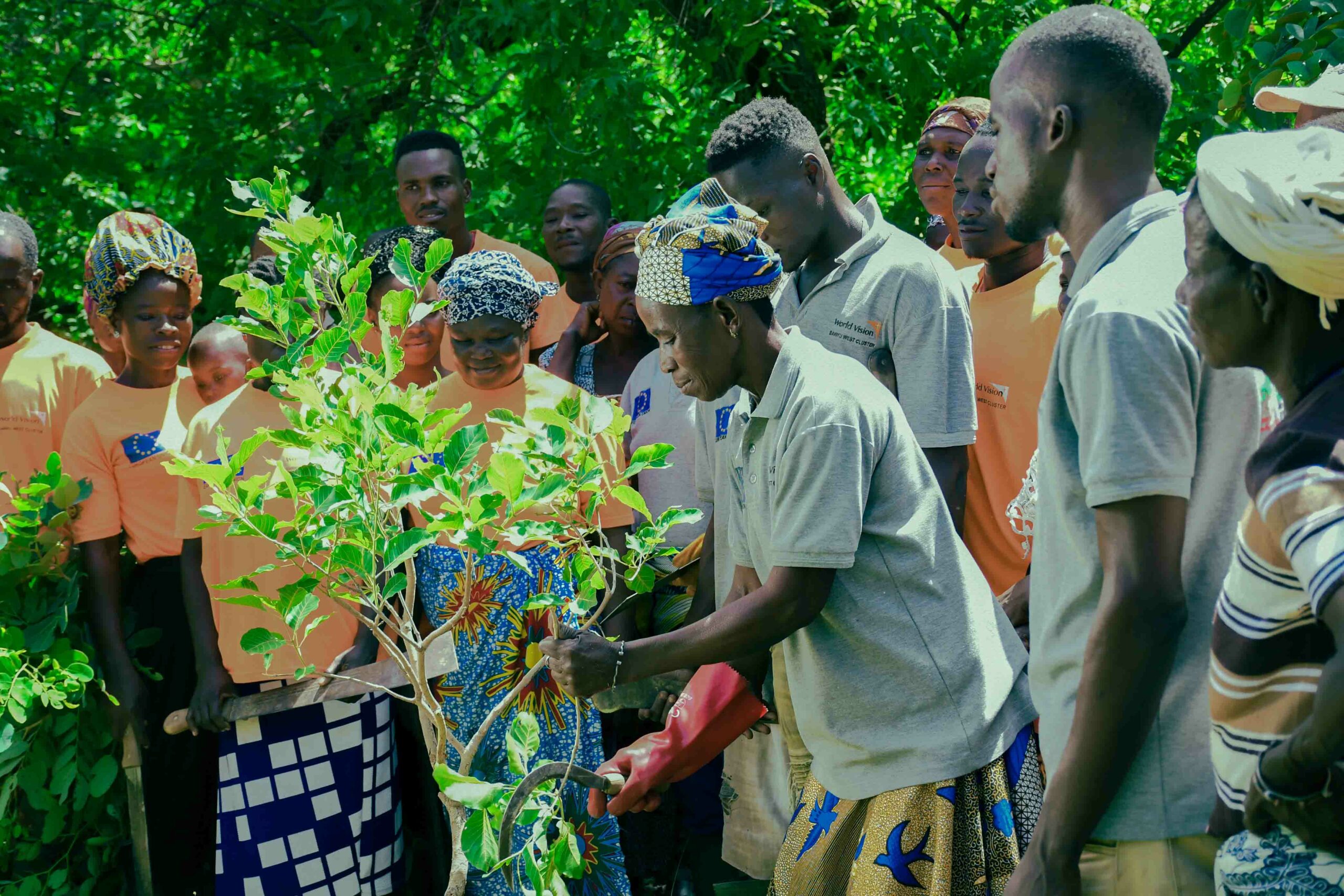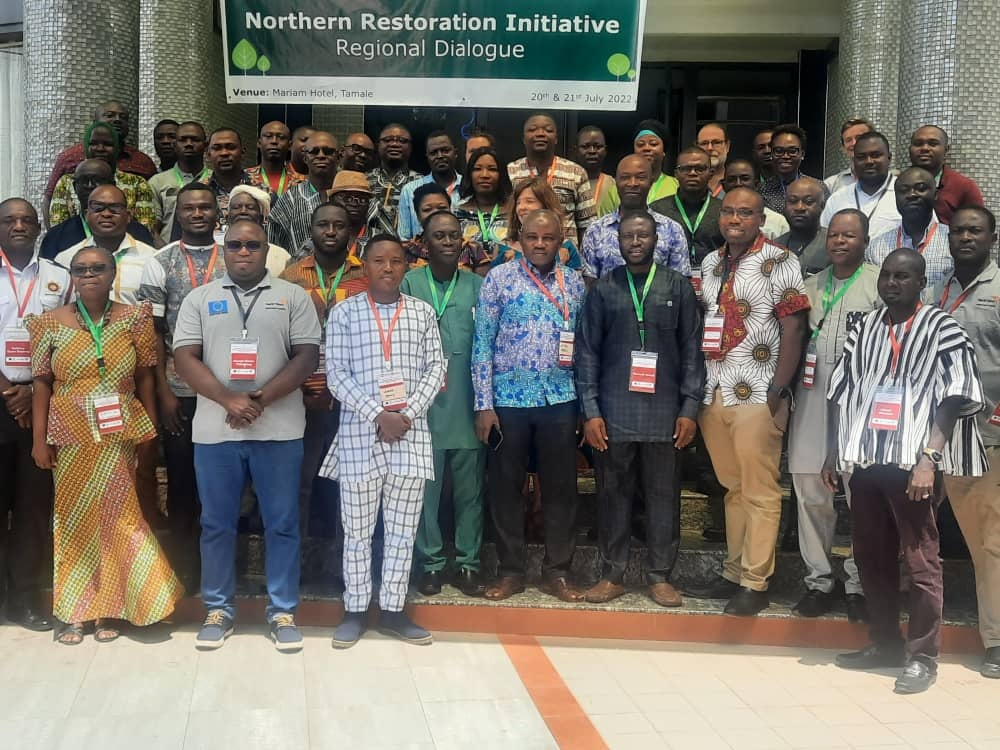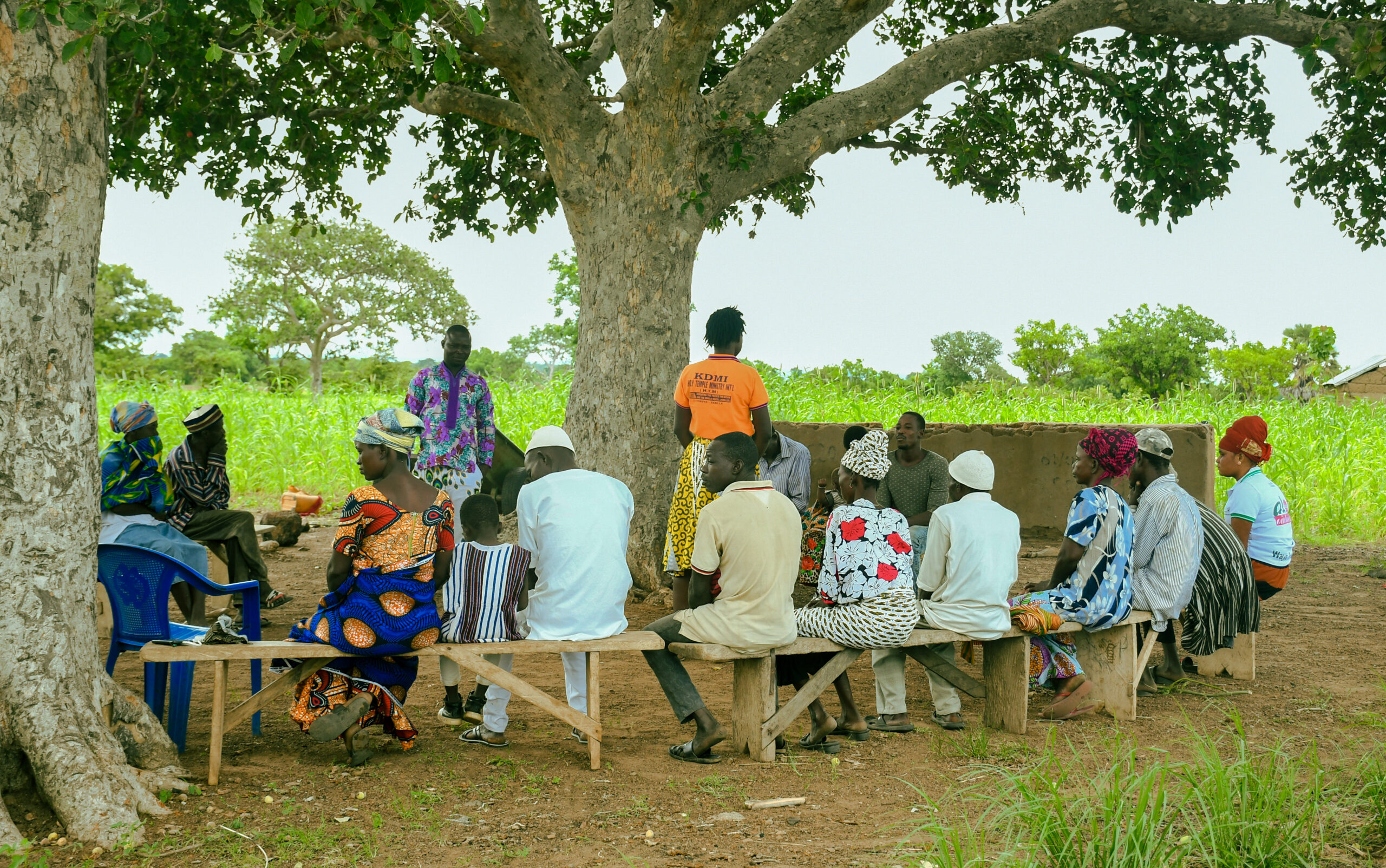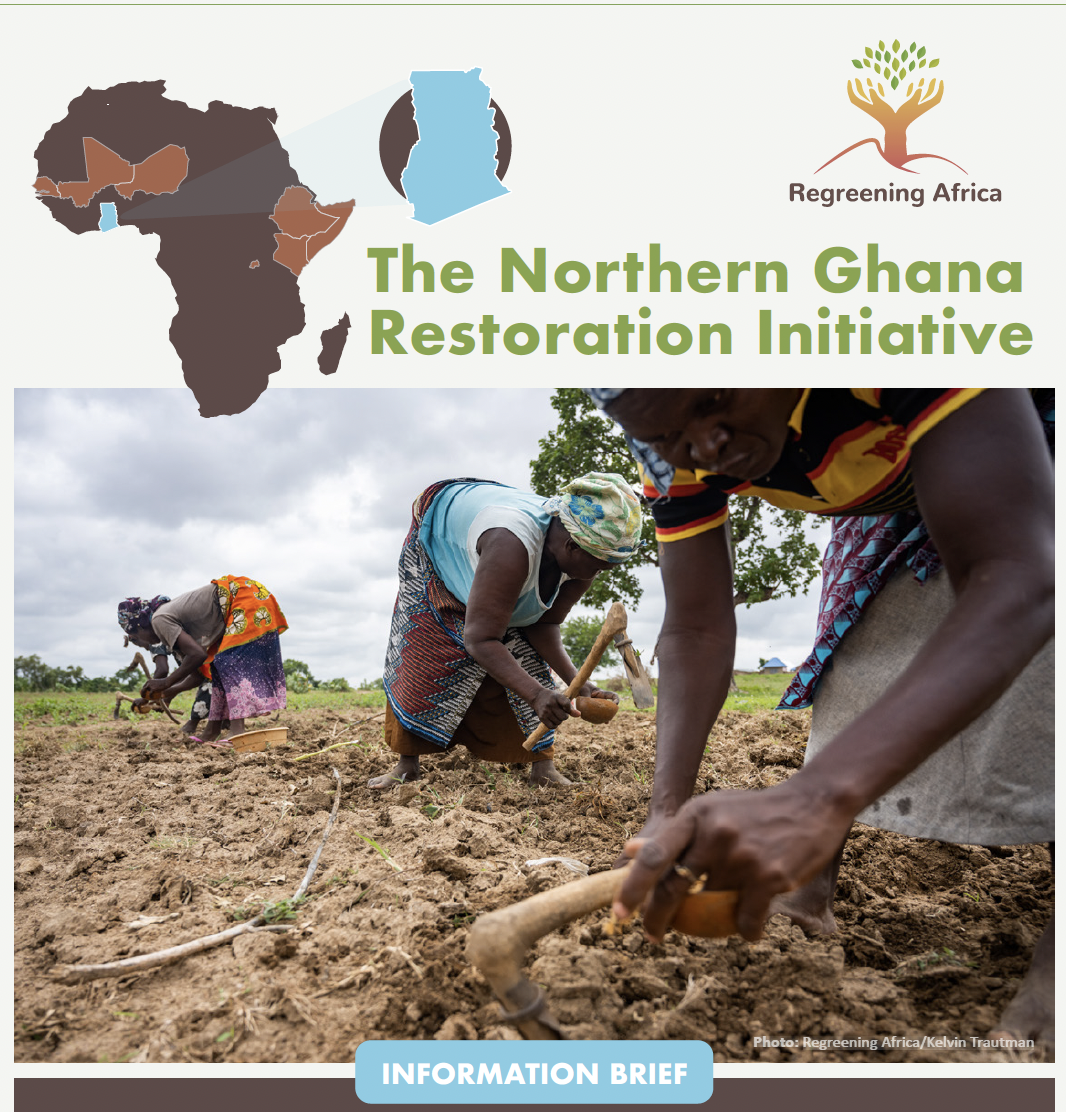BACKGROUND
The National Regreening SHARED workshop held in Tamale in 2018 highlights the urgent need for improving the coordination of the numerous public-led, donor-funded and private programs operating in northern Ghana in the area of landscape restoration, food security and community resilience. Adequate coordination and engagement of all relevent stakeholders are critical to improve the planning, design, implementation of interventions and to generate evidence and share learning. This is particularly important so as to achieve the desired impact and the long-term sustainability of landscape restoration interventions to support the Government of Ghana achieve its commitment under the Bonn Challenge and the African Forest Landscape Initiative to restore 2 million hectares of degraded lands by 2030.
The Nothern Ghana Restoration Initiative (NRI) specifically aims to support the design and implementation of strategies and policies that are aligned and coherent with the savannah mosaic landscape contexts.
DESIRED OUTCOMES
- By 2030, we, the people of the Northern Region of Ghana, will be living and working in regenerative landscapes that have restored ecological integrity and provide ecosystem benefits and services.
- Resilient livelihoods and well-being will be sought from sustainable agriculture, livestock, forestry and agroforestry that contribute to diverse and connectes value chains and our capacity for supportive local savings and loans.
- Our cultural belief system will be associated with our commitment to land restoration and promote the importance of collaboration among indigenous people, men, women, youth and elders and their collective restoration practices.
- Our governance system draws upon traditional and formal structures, will be well coordinated, supports the inclusion of all stakeholders through multi-stakeholdere platforms and promotes and implements policies that result in sustainable landscape restoration for Nothern Ghana.
Inclusive and Evidence Based Approaches to Scaling Land Restoration Engagement Workshop in Ghana
“Inclusive and evidence-based approaches to accelerating landscape restoration” was the theme of a two-day SHARED (Stakeholder Approach to Risk Informed and Evidence-based Decision-making) workshop held on the 21st and 22 October in Accra and organised by the Regreening Africa Project in Ghana implemented by World Vision Ghana and Catholic Relief Services and led by CIFOR-ICRAF (Centre for International Forestry Research and World Agroforestry) with funding from the European Union. The event brought together seventy one international, national and regional partners from government agencies, civil societies, farming communities and academic institutions. One of the principal objectives was to review the Regreening Africa Program successes and learning and discuss the implications of the evidence and experiences gathered during almost five years of project implementation in Bawku West and Garu Tempane in Upper East and in Mion district in the Northern Region of Ghana.

